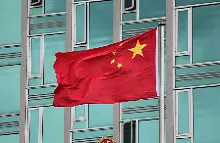Volgens de Chinese pers houdt China deze week oefeningen in zijn ‘kustwateren’. Niets mee mis, lijkt het. Maar het wordt iets anders als die kustwateren de Zuid-Chinese Zee blijken te zijn.
De oefeningen volgen op een uitspraak van het Permanente Hof van Arbitrage in Den Haag dat afgelopen juli in niet mis te verstane bewoordingen alle claims van China op de Zuid-Chinese Zee verwierp. Daarmee boekte de Filippijnen, die de zaak aanspande, een grote overwinning.
De uitspraak van het hof was zo duidelijk dat China geen ruimte voor welke interpretatie dan ook werd geboden. Het hof bepaalde dat alles wat boven de Zuid- Chinese Zeespiegel uitsteekt geen eilanden, maar riffen en rotsen zijn. Voor eilanden geldt een 200-mijl grote exclusieve economische zone; voor rotsen en riffen hooguit een 12-mijlszone.
Door deze uitspraken liggen de door China opgeëiste Spratly ‘eilanden’ binnen de exclusieve economische zone van de Filippijnen. Door de uitspraak kan China de grondstoffenvoorraden niet exploreren, loopt het belangrijke visgronden mis en zijn de daar gebouwde bases illegaal.
De Krim
De oefeningen worden nog pikanter als blijkt dat Rusland meedoet. Tijdens de G20-top die deze maand in het Chinese Hangzhou werd gehouden, steunde president Poetin China bij het verwerpen van het vonnis van het hof in Den Haag. Dat is niet vreemd. Want Rusland ging al over de schreef met de annexatie van de Krim.
Door de zeggenschap van Oekraïne over de Krim en van de Filippijnen over de Spratly-eilanden niet te erkennen verwerpen Rusland en China de kern van het internationale recht, namelijk de beginselen van soevereiniteit en niet-inmenging.
De consequenties zijn verstrekkend. Want als China en Rusland het internationale recht terzijde schuiven, waarom mogen andere landen dat dan niet?
Vuist maken
Wie zijn de volgende slachtoffers? De Baltische Staten? De door China geclaimde Japanse Senkaku-eilanden? Zeker is dat dit gedrag risico’s op grote internationale conflicten met zich meebrengt. Of niet? Het is immers niet zeker of alle Europeanen om de Baltische Staten oorlog willen voeren. En in de Zuid-Chinese Zee blijkt de Filippijnse populistische president Duterte ineens een draai te maken. Niet hij, maar zijn voorganger stapte naar het hof. Die maakte bovendien met Amerika de afspraak om gezamenlijke patrouilles in het betwiste deel van de Zuid-Chinese Zee te houden.
Die afspraak heeft Duterte nu van tafel geveegd. Van Amerika moet hij weinig hebben. Dat leidde al tot de aankondiging dat de troepen van ‘hoerenzoon’ Obama zijn land zo snel mogelijk moeten verlaten. Verder wil hij zijn gruwelijke drugsoorlog met Chinese en Russische wapens gaan voeren. Japan vreest een deal tussen Duterte en China: opgeven van zeggenschap in ruil voor economische steun.
Deze week zagen we weer wat verschuivende machtsverhoudingen en populisme betekenen in de internationale politiek. Natuurlijk kan het Westen een vuist maken. Maar dat vereist effectieve trans-Atlantische samenwerking binnen de Navo, investeringen in defensie, Europese samenwerking binnen de EU en samenwerking tussen de EU en Aziatische landen zoals Japan.
Zolang dat niet gebeurt is het Westen onmachtig en moet het accepteren dat het recht geen recht meer is.
Deze column verscheen in Trouw.





